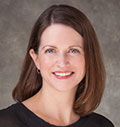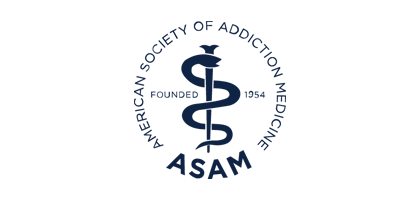Blog
Physician Discovers Personal, Societal Benefits of Volunteering with ASAM
Elizabeth Salisbury-Afshar, MD, MPH, FAAFP, FACPM, DFASAM, initially became interested in addiction medicine during her residencies in family medicine and public health.
The more she treated patients with addiction, however, the more she understood how much work needed to be done outside the clinical setting.
 “When working in Baltimore as the Medical Director of Behavioral Health Systems Baltimore, we started seeing
significant increases in overdose deaths, I started to realize how many gaps there were in substance use disorder treatment and social service systems,” said Dr. Salisbury-Afshar, Associate Professor in the Department of Family Medicine and
Community Health at the University of Wisconsin School of Medicine and Public Health. “We had evidence-based care, but people just couldn't access it or often didn't know how to access it.”
“When working in Baltimore as the Medical Director of Behavioral Health Systems Baltimore, we started seeing
significant increases in overdose deaths, I started to realize how many gaps there were in substance use disorder treatment and social service systems,” said Dr. Salisbury-Afshar, Associate Professor in the Department of Family Medicine and
Community Health at the University of Wisconsin School of Medicine and Public Health. “We had evidence-based care, but people just couldn't access it or often didn't know how to access it.”
It was soon after this that Dr. Salisbury-Afshar learned about ASAM. She said the society has helped her in numerous ways.
“It's been really helpful in terms of learning and networking, but I'm also really interested in policy and systems and how all of these pieces fit together,” she said. “I think ASAM has a tremendous staff and that the organization does fantastic advocacy work. There are many ASAM leaders who are also highly effective in the policy space and the health systems space. Having an opportunity to meet folks from across the country who are leading this work, and who are working in different roles and different systems, has been instrumental to my own professional development.”
Dr. Salisbury-Afshar is currently the vice-chair of ASAM’s Public Policy Committee. As a part of the committee, she has helped craft policies related to medications for patients with OUD, evidence-based care for people who are incarcerated, and services for patients who are under community supervision.
“It has been really exciting and interesting to think about where we as ASAM would like to see things go, even if we aren't quite there yet,” she said.
She also serves as Chair of ASAM’s Fundamentals of Addiction Medicine Course. “I've really enjoyed this role with ASAM because it allows me to help train other clinicians who aren't addiction specialists but who are willing to say, ‘This is a problem in my community and I'm going to learn what I can and I'm going to do what I can,’” she said. “That has been really meaningful work.”
Dr. Salisbury-Afshar is also one of two ASAM representatives on the American Medical Association’s Substance Use and Pain Care Task Force.
“A lot of opportunities have come up through my involvement with ASAM that allow me to network both within and outside of ASAM,” she said. “All of these opportunities help me reimagine what's possible and think about ways to push the envelope, change policy, change systems, and change practice.”
Dr. Salisbury-Afshar said her involvement with ASAM has not only helped her better advocate for her patients, but it has also benefited her in many personal ways, including helping her to become a better clinician and feel more connected with others doing similar work.
“I volunteer to support ASAM, but I also volunteer to not feel lonely in this work,” she said. “This work can be isolating sometimes. There's a stigma associated with people who use drugs, and as a field, addiction medicine is relatively new in terms of being recognized.”
With so many physicians experiencing burnout, she said, volunteering can be a way to recharge and refocus.
“I love working with patients, but I think for me, the reason the advocacy work has been so important is that it gives me an outlet for all of the frustration I have about the systems and the lack of support for the people I'm working with. We have to start thinking a lot more about sustainability for physicians and their overall wellness.”
She encourages other addiction medicine specialists to volunteer with ASAM.
“There aren't many addiction medicine physicians out there,” she said. “Having a place to connect and network with others can be really helpful.”

